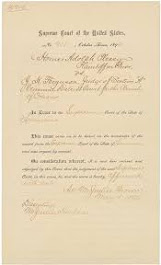The Fourteenth Amendment mandates that no state deny any person within its jurisdiction equal protection under the law. This basic principle is integral to a fair and just society, ensuring everyone is treated equally. The university's policy essentially established a quota system that discriminated against Bakke by reserving a specific number of acceptances for minority students. This practice disregards Mr. Bakke's qualifications and runs against values written within the Constitution.
Mr. Allan Bakke is not just a number but also a qualified candidate for admission to the school's medical college. With a GPA of 3.5 and high scores on his Medical College Admission Test, or MCAT for short, Bakke's academic level exceeds those admitted to the University under the affirmative action policy. The denial of his admission while accepting those who are less qualified simply because they are from minorities is discrimination in every way. This policy not only disregards the hard work and effort Bakke has put into his schooling but is also in clear violation of Bakke's equal protection rights.The University is going to claim that its affirmative action policy is in place to rectify past injustices and give way to diversity. While their goals are to lift students who have been denied in the past, having a non-moving quota, puts sole importance on a person's race rather than their academic ability. Remember this is not just another basic admission, we are talking about Medical School, these are our future doctors and solely based on race are people being admitted and denied. The policy fails to give each applicant as an individual but as a tally mark for diversity within the student population.
 Moreover, this policy on admissions not only undermines Bakke's rights but also diminishes the hard work done by the minority students who were accepted on merit. Accepting students to meet a quota and prioritizing their race over their academic qualifications disregards the whole of their previous education. If the Unversity were trying to reach a truly diverse academic landscape, it would look to an applicant's qualifications, experiences, and potential contribution within the classroom.
Moreover, this policy on admissions not only undermines Bakke's rights but also diminishes the hard work done by the minority students who were accepted on merit. Accepting students to meet a quota and prioritizing their race over their academic qualifications disregards the whole of their previous education. If the Unversity were trying to reach a truly diverse academic landscape, it would look to an applicant's qualifications, experiences, and potential contribution within the classroom.
This case will not just affect Bakke, as this case will create a precedent for educational institutions and their admissions goals. Upholding the policy created by the University would legitimize racial discrimination within our education system, undermining the goals of our current society. We urge the Court to reaffirm the commitment to create a system where individuals are judged not by the color of their skin, but by their character and their academic accomplishments.
We ask the Court to recognize how the policy put in place by the University of California's admissions office directly violates Allan Bakke's rights under the Equal Protection Clause. The school uses a rigid quota system that favors those within certain minority groups, rather than overtly qualified individuals like Bakke, which is unconstitutional. We urge the Court to rule in favor of Bakke, as it would restore his rights, and further ensure that our educational institutions remain steadfast on merit and inclusivity for all students, regardless of their race.






















